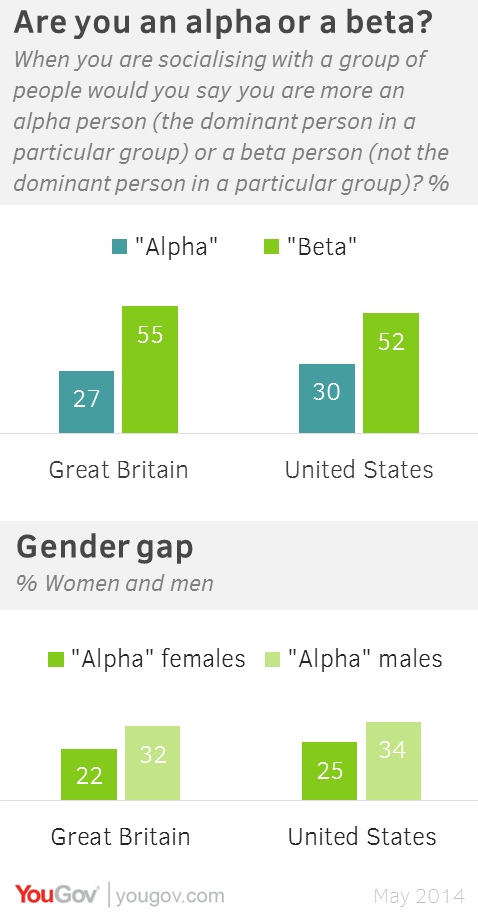The majority of British people say they are "beta" rather than “alpha” type people, but the same goes for Americans
 Americans have a reputation for bluster that is at odds with the British reputation for reserve, but new YouGov data suggests they’re no more likely to think they’re the top dog in social situations than their cousins across the Atlantic.
Americans have a reputation for bluster that is at odds with the British reputation for reserve, but new YouGov data suggests they’re no more likely to think they’re the top dog in social situations than their cousins across the Atlantic.
55% of British people say they tend to be “beta” people, while 27% say they are “alphas”, or socially dominant.
A parallel poll conducted by YouGov America found a similar trend. People there regard themselves as beta rather than alpha by 52-30%, a statistically insignificant difference compared to people in Britain.
For the purposes of this survey, “beta” was defined simply as being “not the dominant person in a particular group” when socialising, though in the animal world the beta is technically the second-in-command to the dominant alpha animal.
More significant was the difference between genders. In both countries, men are more likely than women to say they are the dominant ones in social situations. In Britain, 32% of men say they are alphas compared to 22% of women. In the U.S. the gender gap is 34-25%.
The difference may be surprisingly small given the “alpha male” trope, though this is only the most recent of several recent YouGov polls to suggest a “confidence gap” between men and women. Previous polling has shown that British men are slightly more likely than women to consider themselves to be of above-average intelligence (with a more pronounced difference in the United States) and less likely to say they weren’t their parents' favourite child.






